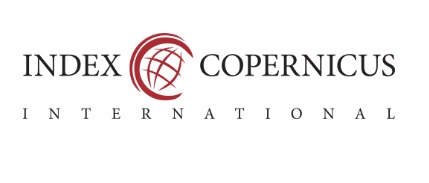An investigation of Thai students’ English language writing difficulties and their use of writing strategies
Abstract
Aim: This research aims to learn more about the struggles undergraduate students in Thailand have when writing in the English language and the strategies they employ to overcome those difficulties.
Methodology: Using a questionnaire with five-point Likert scale items, 157 students enrolled in an intermediate English course provided quantitative data for this study. The data was analyzed with the help of the mean score, the standard deviation, and a chi-square test.
Findings: According to the findings, the student’s writing skills were significantly below par, with the majority of complaints focusing on grammar. It was also discovered that the subjects routinely used cognitive strategies, most notably resourcing. There was no correlation between students’ writing proficiency and the types of writing strategies they employed.
Implications/Novelty: Teachers, curriculum developers, and policymakers can use the results to better understand their students’ struggles with written English. It also emphasizes the importance of teaching students writing strategies so they can employ them to overcome any writing challenges they may encounter.
References
Arndt, V. 1987. “Six Writers in Search of Texts: A Protocol-Based Study of L1 and L2 Writing.” ELT Journal 41(4): 257-267.
Baker, W., and Boonkit, K. 2004. “Learning Strategies in Reading and Writing: EAP Contexts.” RELC Journal 35(3): 299-328.
Bremner, S. 1999. “Language Learning Strategies and Language Proficiency: Investigating the Relationship in Hong Kong.” Canadian Modern Language Review 55(4): 490-514.
Charoensuk, V., and Jaipetch, D. 2017. “Attitudes toward English: A Study of First-Year Students at King Mongkut’s University of Technology North Bangkok,” Journal of Advances in Humanities and Social Sciences 3(1): 42-57.
Ferris, D. 2001. “Teaching Writing for Academic Purposes.” pp. 298-314 in Research Perspectives on English for Academic Purposes, edited by J. Flowered and M. Peacock. Cambridge, MA: Cambridge University Press.
Hilao, M. P. 2016. “Creative Teaching as Perceived by English Language Teachers in Private Universities.” Journal of Advances in Humanities and Social Sciences 2(5): 278-286.
Huang, J. 2008. “How Accurate are ESL Students’ Holistic Writing Scores on Large-Scale Assessments?-A Generalizability Theory Approach.” Assessing Writing 13(3): 201-218.
Iamla-ong, H. 2013. “Language Learning Problems and Language Learning Strategies of MFU Students.” MFU Connexion 2(1): 58-91.
Ismail, S. A. A. 2011. “Exploring Students’ Perceptions of ESL Writing.” English Language Teaching 4(2): 73-83.
Kobayashi, H., and Rinnert, C. 2002. “High School Student Perceptions of First Language Literacy Instruction: Implications for Second Language Writing.” Journal of Second Language Writing 11(2): 91-116.
Maftoon, P., and Seyyedrezaei, S. H. 2012. “Good Language Learner: A Case Study of Writing Strategies.” Theory and Practice in Language Studies 2(8): 1597-1602.
McMullen, M. G. 2009. “Using Language Learning Strategies to Improve the Writing Skills of Saudi EFL Students: Will It Really Work?” System 37(3): 418-433.
Mullins, P. 1992. “Successful English Language Learning Strategies of Students Enrolled in the Faculty of Arts, Chulalongkorn University, Bangkok, Thailand.” Doctoral dissertation, United States International University, San Diego, CA.
Oxford, R. 1990. Language Learning Strategies: What Every Teacher Should Know. New York, NY: Newbury House.
Oxford, R., and Nyikos, M. 1989. “Variables Affecting Choice of Language Learning Strategies by University Students.” The Modern Language Journal 73(3): 291-300.
Pawapatcharaudom, R. 2007. “An Investigation of Thai Students’ English Language Problems and Their Learning Strategies in the International Program at Mahidol University.” Masters’ thesis, King Mongkut’s Institute of Technology, Bangkok, Thailand.
Peacock, M. 2001. “Language Learning Strategies and EAP Proficiency: Teacher Views, Student Views and Test Results.” in Research Perspectives on English for Academic Purposes, edited by J. Flowerdew and M. Peacock. Munich, Germany: Ernst Klett Sprachen.
Pradhan, S. 2016. “English Language Teaching: A Next Gate to Social Awareness.” International Journal of Humanities, Arts and Social Sciences 2(4): 156-158.
Riazi, A. 1997. “Acquiring Disciplinary Literacy: A Social-Cognitive Analysis of Text Production and Learning Among Iranian Graduate Students of Education.” Journal of Second Language Writing 6(2): 105-137.
Riazi, A. 2007. “Language Learning Strategy Use: Perceptions of Female Arab English Majors.” Foreign Language Annals 40(3): 433-440.
Rubin, J., and Thompson, I. 1994. How to be a More Successful Language Learner: Toward Learner Autonomy. Dallas, TX: Heinle & Heinle Publishers.
Sasaki, M. 2000. “Toward an Empirical Model of EFL Writing Processes: An Exploratory Study.” Journal of Second Language Writing 9(3): 259-291.
Taher, M. A., Shrestha, P. N., Rahman, M. M., and Khalid, A. K. M. I. 2016. “Curriculum Linked Video (CLV) as a Tool for English Language Teaching (ELT) at Secondary School Classrooms in Bangladesh.” International Journal of Humanities, Arts and Social Sciences 2(4): 126-132.
Tangkiengsirisin, S. 2010. “Enhancing Cohesion in Thai Postgraduate Students’ Expository Writing Through Feedback Delivery and Revision.” Doctoral dissertation, University of Nottingham, Nottingham, UK.
Victori, M. 1995. “EFL Writing Knowledge and Strategies: An Integrative Study.” Doctoral dissertation, Universitat Autonoma de Barcelona, Barcelona, Spain.
Wenden, A. L. 1991. “Metacognitive Strategies in L2 Writing: A Case for Task Knowledge.” pp. 302-322 in Georgetown University Round Table on Languages and Linguistics, edited by J. E. Alatis. Washington, D.C., WA: Georgetown University Press.
Zamel, V. 1982. “Writing: The Process of Discovering Meaning.” TESOL Quarterly 16(2): 195-209.

This work is licensed under a Creative Commons Attribution-NonCommercial 4.0 International License.












.png)










